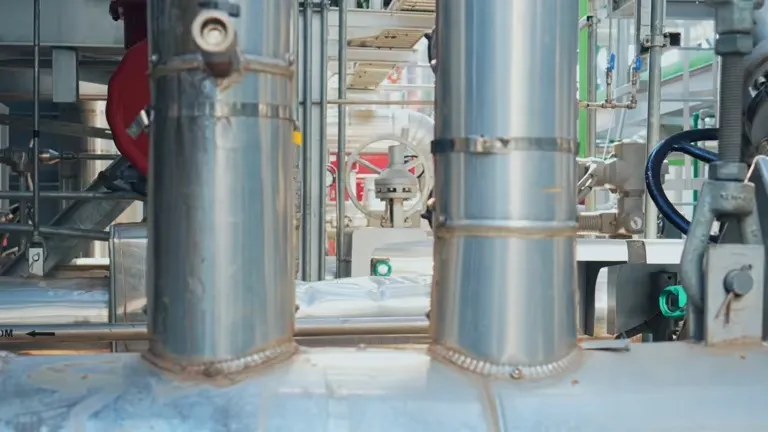
Boiler Replacement in Willow Street, PA
Replacing an aging or failing boiler is one of the most impactful home upgrades for Willow Street, PA homeowners. With cold Lancaster County winters and many older homes that rely on hydronic heat, a modern, properly sized boiler delivers steadier comfort, lower fuel costs, and fewer emergency repairs.
Why Willow Street homes replace boilers
Common reasons homeowners in Willow Street seek a boiler replacement include:
- Old age and frequent breakdowns: boilers older than 15 to 20 years lose efficiency and need more repairs.
- Rising winter fuel costs: inefficient systems burn more gas, oil, or propane during Lancaster County winters.
- Uneven heat or persistent cold rooms in older homes with radiators or radiant floors.
- Rust, leaks, or pressure problems that indicate imminent failure.
- Desire to upgrade to a high-efficiency condensing or modulating-condensing model for long-term savings.
Understanding local climate and home construction helps prioritize replacement over repeated repairs. Extended cold spells in this region make reliability especially important.
Initial evaluation and load assessment
A careful on-site evaluation is the foundation of a successful boiler replacement. A professional will:
- Inspect the existing boiler, flue, combustion air, piping, controls, and distribution (radiators, baseboards, or radiant tubing).
- Perform a heat loss calculation specific to the home — accounting for square footage, insulation levels, window types, exposure, and room-by-room needs — to determine correct boiler capacity.
- Check fuel type and availability (natural gas, propane, or oil) and the condition of the supply lines.
- Review system hydraulics and distribution to identify any piping, zone valve, or circulator upgrades needed.
Right-sizing is critical. Oversized boilers cycle inefficiently and wear out faster. A load-based sizing approach ensures steady, efficient heat through Willow Street’s cold months.
Comparing high-efficiency models and features
When evaluating replacement options in Willow Street, consider features that matter most for efficiency and comfort:
- Condensing technology: recovers heat from flue gases for AFUE ratings often in the 90s.
- Modulating burners and variable-speed pumps: match output to real-time demand, reducing fuel use and short cycling.
- Stainless steel or aluminum heat exchangers: corrosion-resistant and durable in hydronic systems.
- Outdoor reset controls and smart thermostats: improve temperature stability and system efficiency.
- Compatibility with existing radiators or radiant floors: minimizes invasive piping changes.
- Space and venting requirements: condensing units often require PVC venting and a condensate drain.
Compare long-term operating costs and expected life span, not only initial price. High-efficiency boilers typically pay back over time through lower fuel bills and longer service life.
Permitting, rebates, and financing options
Boiler replacement in Willow Street will usually require local permits and inspections to meet Pennsylvania and Lancaster County codes. A qualified installer will secure permits, handle inspections, and ensure proper venting and combustion safety.
Financially, homeowners should:
- Investigate federal, state, and utility rebates or tax incentives for high-efficiency boilers and energy upgrades; programs change, so check current eligibility.
- Consider financing solutions or energy-efficiency loan programs to spread investment over time.
- Review warranty and expected lifecycle to factor into return-on-investment calculations.
Working with an experienced local contractor ensures compliance with permitting and eases the paperwork for rebates or incentive programs.
Removal and professional installation steps
A professional replacement follows a clear sequence to maintain safety and minimize disruption:
- Pre-install inspection and system shutoff. Confirm permits and equipment delivery.
- Disconnect utilities and safely remove the old boiler and any obsolete venting or combustion air assemblies.
- Inspect and, if needed, repair or replace piping, circulators, zone controls, and expansion tanks.
- Install new boiler, venting or condensate drains, and required combustion air arrangements.
- Connect controls, zone valves, and thermostats; integrate outdoor reset if used.
- Flush and fill the hydronic loop, add corrosion inhibitors or water treatment as recommended.
- Perform combustion analysis, pressure testing, and system balancing.
- Provide owner documentation: operating instructions, warranty registration, and maintenance guidance.
Timeline: a like-for-like replacement often takes 1 to 3 days. Conversions (fuel change), extensive piping updates, or installations requiring structural changes can extend the project to several days or a week.
Warranty coverage and documentation
New boilers come with manufacturer warranties on major components and heat exchangers; labor warranties vary by installer. Ensure you receive written warranty details, registration instructions, and maintenance requirements to keep warranties valid. Retain documentation for resale value and future service needs.
Long-term benefits for Willow Street homeowners
Upgrading your boiler yields measurable homeowner benefits:
- Lower heating bills from higher AFUE and smarter controls during Lancaster County’s long heating season.
- More consistent, quieter warmth throughout the house, reducing cold spots common in older systems.
- Reduced repair frequency and improved reliability during cold snaps.
- Better indoor air quality and safety from properly vented, well-maintained combustion appliances.
- Increased home value and appeal to buyers who prioritize efficient heating in this climate.
Pairing a new boiler with improvements like pipe insulation, thermostat upgrades, or additional attic and wall insulation returns even greater energy savings.
Maintenance tips to protect your investment
To maximize efficiency and longevity after replacement:
- Schedule annual professional tune-ups and combustion checks.
- Maintain proper system pressure and check for leaks seasonally.
- Flush and chemically treat the hydronic loop as recommended to prevent corrosion and sludge.
- Keep vents, chimneys, and combustion air inlets clear.
- Use zoning controls to avoid overheating unused areas.
A small annual maintenance investment preserves warranty coverage and keeps operating costs low.
Replacing a boiler is a technical but high-impact decision for Willow Street homeowners. With a properly sized high-efficiency unit, correct installation, and routine maintenance, you gain reliable winter comfort, lower fuel use, and peace of mind through Lancaster County’s cold months.


Enjoy flexible financing options that make upgrading or repairing your HVAC system easy and budget-friendly.










